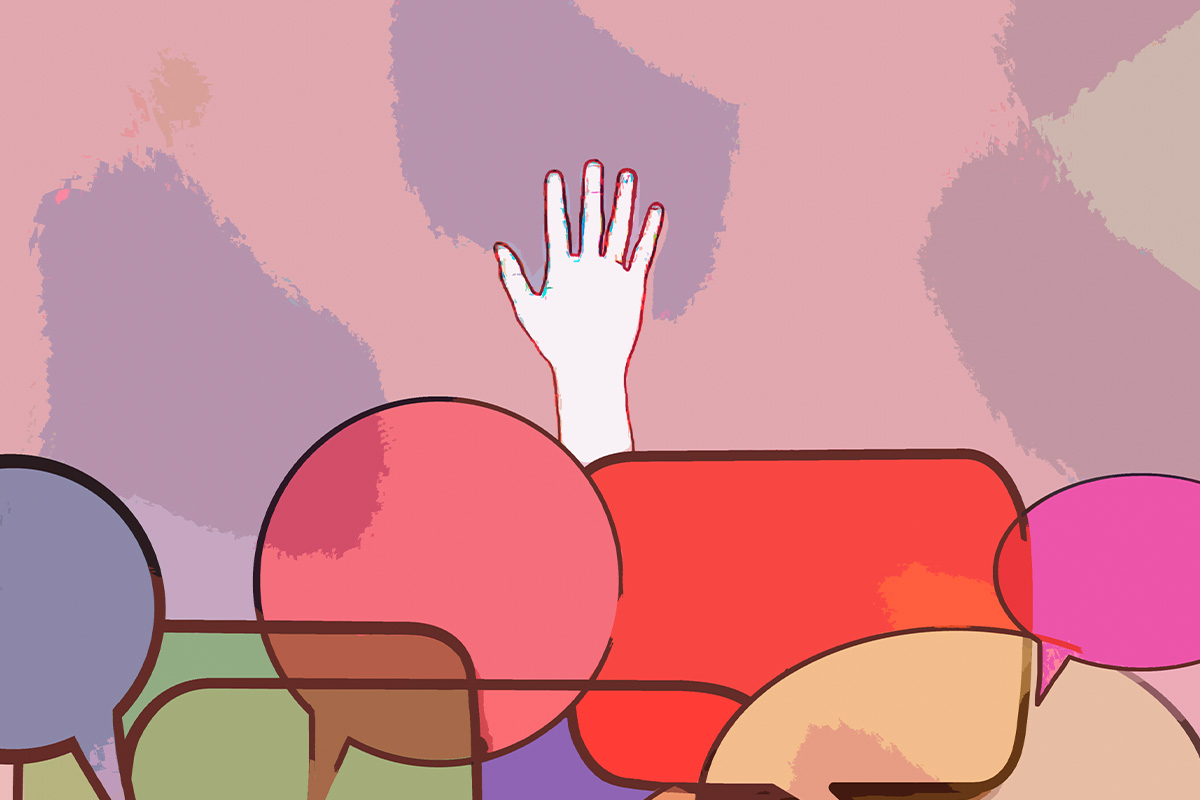My neighbor is obsessed with my Jewishness. Like, literally obsessed.
When I happen to arrive home while he’s entertaining guests out the front, he doesn’t offer the standard introduction my other neighbors give me: “This is Tami and that’s her dog Lenny.” No — this guy always opens with, “That’s Tami. She’s Jewish.”
For the most part, his fascination takes the form of harmless questions like, “Do you wear a wig?” (No.) “Do you speak Israeli?” (A few words. Also, I think you might mean Hebrew?) “Why do they need so many security guards outside that Jewish school?” (I’ve got something simmering on the stove, I’ll get back to you!)
While it’s not fully clear whether or not my neighbor’s questions have sinister undertones, the man has historically said some alarming things. When Sydney was sent into its first official lockdown in 2020, I found myself on the receiving end of a spontaneous rant about COVID-19 being a conspiracy created by the Illuminati. So yeah, there’s a good chance he believes that I shapeshift into a lizard at sunset.
If you’re Jewish — practicing or otherwise — you probably have at least one “Jew-curious” friend. As well as being great confidantes and springboards for discussions on a wide variety of topics, they also happen to take pleasure in learning obscure Yiddish words and throwing them around in casual conversations. They enthusiastically join you for Shabbat meals and menorah lightings, and have a giggle when you remind them of the time they brought hot cross buns to Seder.
I am not talking about these friends.
I am talking about the colleagues and acquaintances who seem to only have one area of interest: Judaism, and specifically your intimacy with Judaism. Their comments are mostly innocuous but nevertheless frustrating — so much so that when you’re done packing away your gym equipment or a conference call comes to a close, you’re left with an unsettling aftertaste, a lingering pseudo-paranoia: Was that person (accidentally) antisemitic?
Like the work buddy who discovered your Hebrew name a few years ago and has referred to you exclusively as “Shmuel” ever since. Or the pal who consistently gifts you Jewish kitsch: Hasidic rubber ducks, tea towels that read “I can’t keep calm, I’m Jewish!” Or the fellow college student who makes you the Zionism defense spokesperson in class without your consent, even though you’re studying Naturopathic Midwifery.
So how should you and I approach these types of situations? Should we confront our neighbors or avoid potential conflict?
To find my answer, I begin by looking back through my own personal history — because it’s not the first time I’ve been in this awkward position.
About ten years ago, I ghosted a prospective creative partner. She was talented, kind and proud of her Christian faith. The thing is, she spent a lot of time explaining why she loved Jews so much: why Jews were the “chosen people,” why Jews had a birthright to Israel, how tragic the Holocaust was. (Yeah mate, I know.) I sometimes felt like her remarks implied: “I don’t care what everybody says about you, I think you’re super cool.” It was weirdly off-putting, and I didn’t know how to articulate my unexpected reaction. What could I say? “I don’t think this creative partnership will work out because you like the Jewish people — of which I am one — a little bit too much?”
I am not blind to the fact that Jewish communities around the world could benefit from a few more advocates; I totally appreciate that this type of “accidental antisemitism” is not nearly as threatening as the overt hate crimes Jewish people still unfortunately face (which explains the need for “so many” security guards outside Jewish schools). But even well-meaning sycophantic banter or a humorous gift can feel dehumanizing. It’s like I’m being viewed as a novelty, a sort of real-life “Marvelous Mrs. Maisel,” instead of as an actual multi-dimensional person.
Because of its inherent subtlety, “accidental antisemitism” is hard to manage. When I worked in a pub, a patron once ordered some tap water and punctuated the request with, “Sorry to be a Jew.” This conspicuous antisemitic slur was easy to counter; I told him I was Jewish, that his comment was offensive as it perpetuated myths that had justified the murder of millions of Jews. I think he got the point: He apologized and walked away sheepishly. In retrospect, I may have had the courage to speak up because the offender was a complete stranger. It’s more challenging to unpack unsolicited remarks when they come from people who live and work in close proximity to us. People who “mean well.” People who let you park your car in their driveway when they go on holidays.
I have asked myself if part of my discomfort at being “outed” as Jewish is due to my own internalized antisemitism, but I don’t think that’s the case here. I’m proud of my Jewishness. I do not want to hide it. It’s just not something I wish to be defined by right off the bat. I’ll happily share details of my Jewish experience; I just don’t want it to be our only topic of conversation.
I think my feelings here represent a broader perspective, one that may be shared by many members of minority groups who wish to be perceived and described in lots of different ways. I want people, including my neighbor, to introduce me more like this: “This is Tami. That’s her dog, Lenny. Tami always forgets things on the stove. She’s a writer, parent, friend. Tami’s proud of her Jewish heritage. She’s a complex person.”
Or if they’re short on time, a simple “this is Tami” will do.



